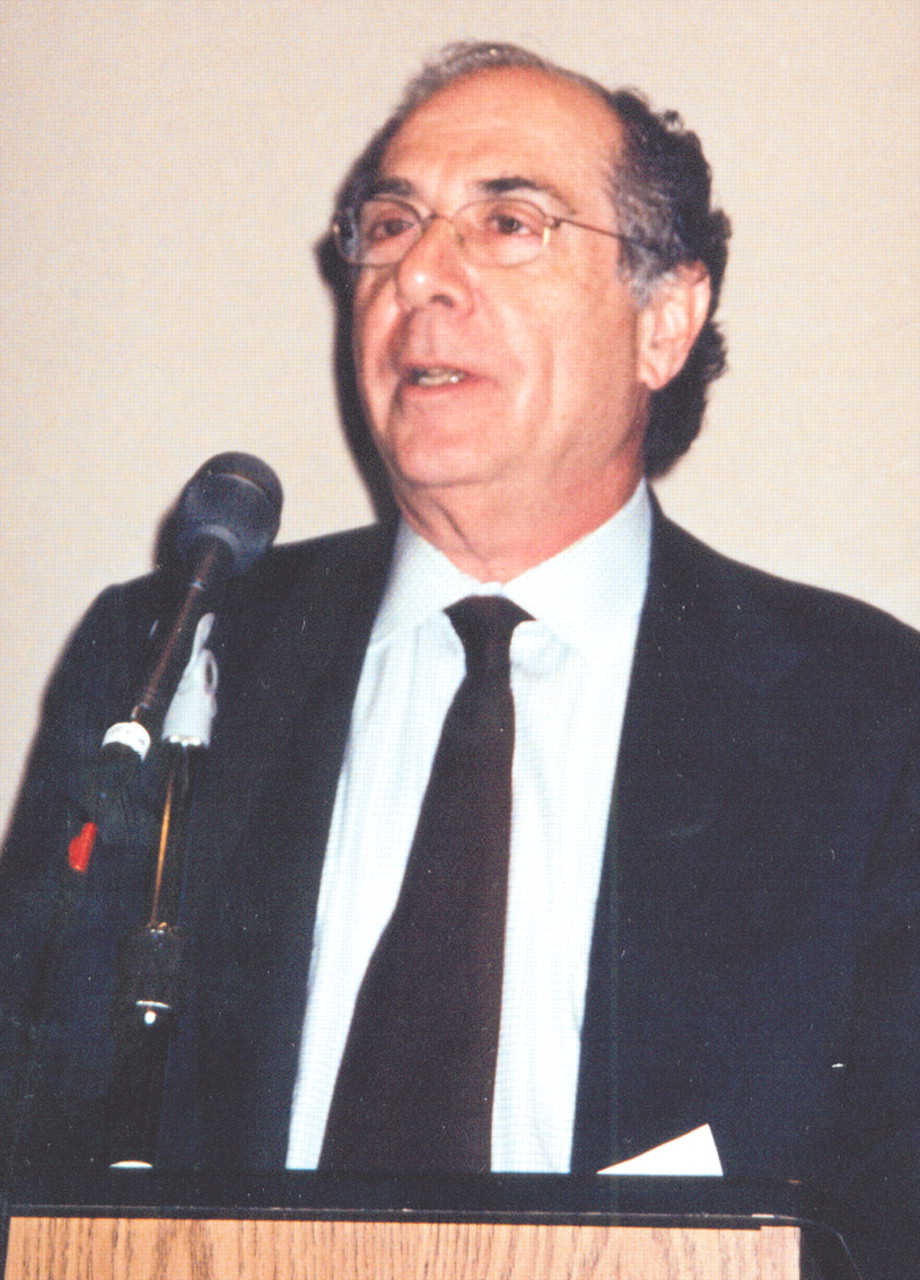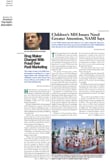There is no limit to the number of places reserved for star athletes in America's pantheon of heroes. No wonder then that the vast majority of the country's youngsters— especially boys but increasingly girls as well—aspire to be a part of the special culture in which effective use of muscles and coordination can bring glory and so much more.
But the values that rule in “jock culture,” though they have become dominant and desirable in American society, can be destructive as well, maintains Robert Lipsyte, the award-winning former sports reporter and columnist for the New York Times.
At an APA annual meeting lecture in New York City in May, Lipsyte, who was a 1992 finalist for the Pulitzer Prize for commentary, emphasized that“ psychiatry has not taken enough interest in jock culture as a window into other American pathologies.”
By dismissing sports “as all fun and games,” psychiatry is missing an opportunity to understand a “dominant strain in our national life,” he said, and how its values are at the root of a sizable portion of the behavior of American youth and adults.
“The values of sports have come to permeate the larger culture in ways that too often inflict psychological damage on the performer and the spectator.”
These values—machismo, entitlement, bullying, self-absorption, and emotional constriction—as well as positive ones such as loyalty, bravery, and sharp focus are markers for success in such disparate venues as Wall Street, newspaper newsrooms, the Pentagon, and hospital operating rooms, Lipsyte said. “Jock culture has left its cleat marks on every phase of American life.”
That impact is evident in the way parents raise their children, in relations between men and women, and in work and recreation, he noted. It's also not hard to find in politics, Lipsyte added—just look at the candidate “whose warrior mentality rationalizes a negative campaign.”
Those cleat marks may be deep, but they are, however, “not all bad,” he pointed out. One can look to surgeons, test pilots, and explorers, for example, who “have enriched and enlarged our world by acting out jock definitions of bravery, risk taking, dedication, and sacrifice for a goal.”
These values—for better and for worse—take root very early in life and are rarely left behind as youngsters mature, said Lipsyte, who is an award-winning author of more than a dozen fiction and nonfiction books on sports and other topics for teens and young adults.
Among the less-benign aspects of jock culture, Lipsyte said, are the devaluation of women, shunning of anyone considered to be “not on the team,” an unyielding mission to dominate opponents totally—“winning is not enough”—disdain for those considered to be weak, and the belief that “empathy can cost you the win.” He also cited the pernicious effects of common coaching strategies that rely on humiliation and shame as primary motivators.
And despite homoerotic aspects of team culture, such as several teammates and women engaging in group sex, for example, and locker room joking and teasing, even the suspicion of homosexuality in an athlete is a sure ticket out of the privileged world of sports, he pointed out.
Athletes' sense of their own manhood “is so vulnerable” that if one teammate is thought to be gay, other teammates will quickly “get rid of him before he casts doubts in fans' minds” about the whole team's masculinity and sexual orientation, he stated.
Even sports writers with a vast knowledge and understanding of athletes and their games largely ignore this issue, despite its crucial role in jock culture, Lipsyte added. He suggested that, ironically, sportswriters in general refuse to write about homosexuality and homophobia among the athletes they cover out of fear that “people will think that they're gay, too.”
The only people that jock culture disparages as much as homosexuals, he pointed out, are women—an attitude that is fostered early and becomes an entrenched part of life by adulthood.
While the general perception among the masses who support jock culture is that people are somehow flawed and apart if they can't find a place in or near the world of sports; in fact, they can suffer “lasting damage” by being included, Lipsyte stressed.
The challenge for psychiatrists, parents, and others concerned about the mental health of children and adolescents and the culture in which they live is to find ways to de-emphasize the “destructive aspects of jock culture,” he said, and to reward instead behaviors that foster the“ enormous good that comes from healthful, collective play.”▪

